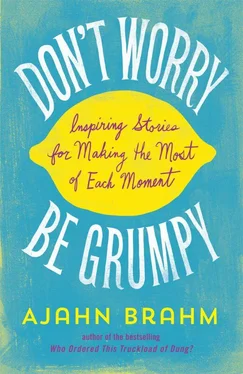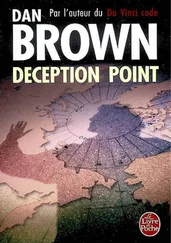In 2004, I was awarded the prestigious John Curtin Medal — named after Australia’s war-time Prime Minister — for exhibiting the qualities of vision, leadership, and community service in Australia. The presentation was made before dignitaries in Perth’s Curtin University.
When I was asked to give a short acceptance speech, I stated that it was a great honor and a surprise, because there were others in the Australian community who had done much more service than I had done. I also emphasized that I could not have achieved so much without the huge support of so many others.
The following year, I received an invitation to attend the award ceremony for the 2005 winner. Thinking that if others attended my ceremony, then I should attend theirs, I went.
That year, the medal was awarded to Doctor Joske, the then-head of haematology at one of Perth’s main hospitals. In his work with cancer sufferers, he had noticed that they received the world’s best treatment in surgery, chemotherapy, and radiation therapy but inadequate aftercare. So he used his considerable influence to obtain a few rooms in the busy hospital to establish an alternative and complementary therapy center. There, anyone receiving conventional treatments for cancer could also receive acupuncture, foot massage, reiki, and other such treatments generally considered unscientific, all free of charge. He reasoned that, at the very least, the patients would receive comfort and relief and feel cared for when, say, someone massaged their feet for thirty minutes. Ridiculed by his fellow doctors, he pressed ahead and had remarkable positive results. I was inspired by his story.
Then Doctor Joske was asked to give his acceptance speech. He said that it was a great honor and a surprise, because there were others in the Australian community who do much more than he had done. He also pointed out that he could not have achieved so much without the huge support of so many others.
Sitting in the audience, I thought, “Hey! That’s my speech from last year.” Indeed it was. It is most people’s speech when given praise in public.
In Doctor Joske’s case, I was absolutely convinced that he well deserved the recognition that the John Curtin Medal gives. It made me think, “Perhaps, conceivably, I also deserved the previous year’s award? Many highly intelligent academics had thoroughly researched my work and its outcomes and decided I was worthy. What right had I to question their wise and informed judgment?” I concluded that yes, just as Doctor Joske deserved his award, so I deserved my medal. Only then did I receive the praise, albeit one year late.
Now when intelligent people give me praise, I pay due respect to their wisdom by receiving the praise, saying, “Thank you. I deserve that.”
My response makes people laugh because it is unusual, but they get the point and begin to accept praise themselves. It makes such a huge difference to their emotional well-being.
As a postscript, I previously rejected praise because I had been taught that it would give me a big head. It does not. Instead, receiving praise gives you a big heart.
The Fifteen Seconds of Praise Rule
Experiments in psychology have shown that it takes on average fifteen seconds of continuous praise for it to be heard. But criticism is received immediately!
We are so uneasy with receiving praise that we usually reject it with thoughts such as:
“What is she on about?”
“Is he drunk or just plain crazy?”
“Okay, there’s some hidden motive behind this.”
Therefore, if you want to tell your wife what a wonderful woman she is, or tell your husband how much you admire him, then get out a stopwatch or look at the clock and keep going . Only after fifteen seconds will they take the praise seriously!!
When we do need to criticize people, what often happens is that we do it so unskillfully that they get offended, we feel bad, and so we avoid giving any more feedback in future. The original problem gets worse.
Imagine a business where a manager is too reluctant to point out a fault in a worker because she doesn’t like conflict. The business will suffer. Suppose the coach of a sports team delays criticizing one of the player’s failings because he is afraid of creating discord. The team will lose. It is our duty to give timely criticism. Here is how it is done.
First, praise the people you want to criticize. Lay it on thick but honestly. The purpose of the praise is to establish that we respect them, value their contributions, and that we are not simply putting them down.
Praise also serves to open up people’s ears. We pay scant attention to what people are saying to us, preferring to listen to our own thoughts about what they are saying instead. Praise is the bait that lures us out of our self-protective inner safety room so we can fully hear what is being said. We like praise, so our ears open wider for more.
Then we hit them, metaphorically of course, with the criticism, “But…” And the reprimand goes in through opened ears.
Lastly, we add another thick layer of praise, reinforcing that we are not rejecting them as people, only pointing out one or two faults among so many good qualities that we have just now taken the time to point out.
The result is that the offender accepts the criticism without feeling diminished, we as manager have performed our job with no unpleasant aftertaste, and the problem has been addressed.
The first wad of praise is the top slice of bread in the sandwich, and the last layer of praise is the bottom slice. The criticism is the filling. Thus it’s called the “sandwich method.”
Before I became a monk, I was a teacher in a British high school. Teaching teenagers is enough stress to make anyone think of renouncing the world and becoming a monk!
When I had to give my first exam in mathematics, I asked a senior teacher for advice. He told me not to make it too hard, because if the average score is 30–40 percent, the students will become discouraged. They will start thinking that math is too difficult and give up. Conversely, if the test is too easy and the average mark is 90–100, then the test would be pointless.
So he advised me to set the test aiming for an average score of 70. That way the students will be encouraged in their ability to do well at mathematics and, in the 30 percent of the test where they make mistakes, I would be able to identify their weak points and address those in their next lessons. The exam was 70 percent for encouragement and 30 percent for learning.
Later, I realized that the same applies to life. If your average score in life’s tests is only 30–40 percent, then you will become discouraged, even depressed, and give up. And if you always score 95–100 in life, you learn very little and stagnate. But if your life’s score is around the magical 70 percent, then you have enough success to retain your motivation and enough failure to learn and grow as a person.
The 70-percent rule demonstrates why we should never expect 100 percent in life. It shows why it is all right for you to fail sometimes. Aim to fail 30 percent of the time, and you will have a rich life. Aim not to fail at all and you will be so stressed, afraid, and controlling that you won’t have much of a life at all. So lower your expectations to 70 percent and start enjoying life.
We have such high expectations of our husbands and wives that we find it hard to enjoy a long-lasting relationship where we both feel accepted enough to grow. So if your husband only scores 70, keep him ! If your wife scores 98, tell her to relax more and make some mistakes or you will dump her!
Читать дальше










